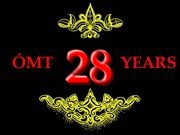
Danube Day Celebration
on the 558th anniversary of the victory of the 1456 Battle of Nándorfehérvár

|
|
Danube Day Celebration on the 558th anniversary of the victory of the 1456 Battle of Nándorfehérvár |
|
on July 22. 2014
"Our nation, this great river,
which has
divided into hundreds of different parts,
is uniting through its
celebration of those parts."
(Petőfi)
OUR COMMUNITY EVENT
The Battle of Nándorfehérvár is a special event to remember in our history as it is, in one way or another, equally dear to the hearts of people living in countries along the Danube river and in the neighbouring countries.
The events of the commemoration on this day seek to evoke important memories of the history of humankind, of larger regions and those that are important for religious and cultural communities. The focus of this year’s event on July 22 is to celebrate the anniversary of the battle. But other programmes, such as a book presentation, an exhibition, a rowing tour on the river, a church mass and a bonfire and folk dance-house will also be organised on the day of the commemoration.
By organising the Danube Day Celebration we would like to raise public awareness of the current condition of the Danube and other rivers and waters, their environment and the importance of protecting them as well. We want to bring public attention to our sailors’ present situation; the workers and victims of the waters; all those whose fate is linked to the Danube and the waterways of Hungary. Power generation, fishing, the utilisation of the waters and other activities are common to all countries, even the ones not directly connected to the River Danube, in wider regions and on other continents, where religions are different, yet the goal of protecting the waters and the environment, as well as flood protection, call for solidarity among peoples.
It is symbolic also because the Danube, especially as it is connected to the Rhine and the Main and as a river that crosses Europe, connects not only the direct neighbours, but the broader regions as well. This river is a carriageway, nurturing, watering the environment and delighting the observer’s eyes, and it is also a source of life, nature and an inspiration to arts. It symbolizes the bond among countries, peoples and cultures and refers to the unity and interactions of a common European culture. We intend the anniversary to grow into a wide-scale community festival, a real experience to many transmitting its messages to smaller and larger communities living near or far.
On the anniversary of the Battle of Belgrade – Nándorfehérvár fought from 12th – 22nd July in 1456 we also celebrate people, who were ready to sacrifice their lives and persevered even in hopeless situations.
We celebrate the peoples of our region, the cultural and religious traditions of their common medieval history, their common European roots and the victory achieved by Christian solidarity. We celebrate our sailors, since the battle would have been ended differently, had it not been for the Fleet of the Lower Danube. Thanks to the heroic stand and bravery of the – as they were called in the Middle Ages – ‘Royal Sailors’, the succours – in an otherwise totally hopeless military situation – were able to proceed to Nándorfehérvár. This day also deserves to be called the festival of Hungarian shipping.
(The name ‘Royal Sailors’ refers not only to the sailors themselves, but to everybody who’s trade was somehow connected to the water and the river – towing men, ferrymen, shipwrights etc.)
Most of our festivals and anniversaries are a source of joy for the broader community, including small and large groups as well. As the number of those in our community and the influence of our culture are decreasing we need more and more delightful experiences that serve as a compass for the divided, fragmented community as a whole, bringing us joy, setting us a good example and offering a hand tohold on our way.
This heritage and the anniversary celebrations are special for they give a real community experience for people regardless of their origin, religious affiliations, the different political affiliations and any other aspects separating them.
With kind regards,
László Bóta
laszlobota@gmail.com
|
|
|
|
|

All Rights Reserved